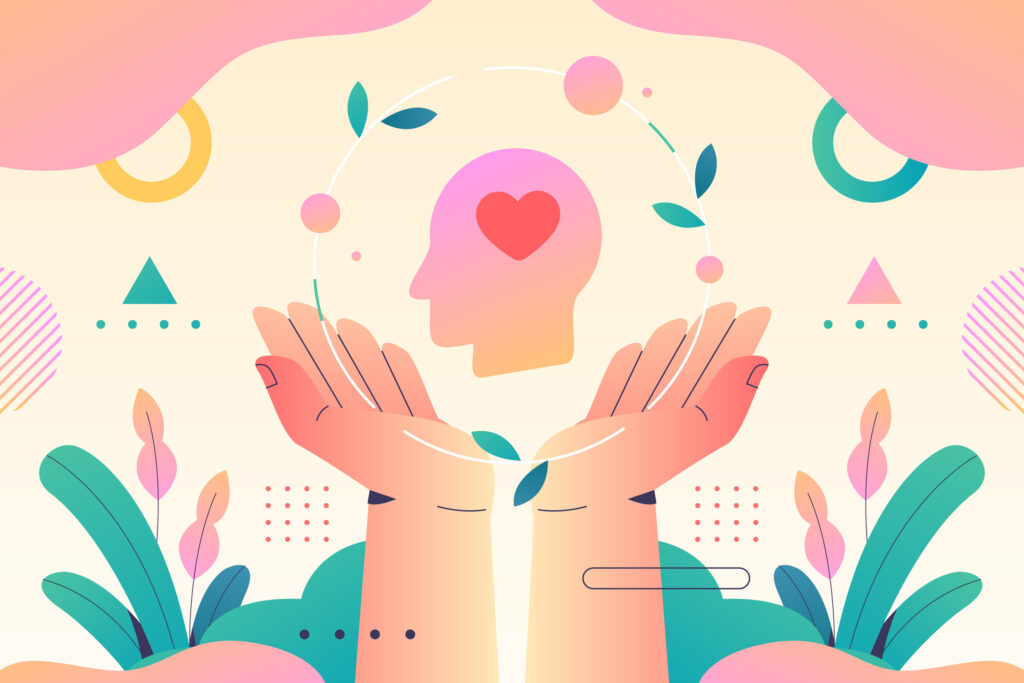Introduction
Our mental health frequently suffers as a result of our hectic schedules and never-ending to-do lists in the rush of modern life. But maintaining our mental well-being is equally as crucial as maintaining our bodily well-being. We’ll examine major mental health issues, discuss the significance of placing a high priority on mental health, and offer helpful advice for keeping a clear head in this all-inclusive introduction to mental health awareness.

Recognizing Mental Health: Eliminating the Myths
Our emotional, psychological, and social well-being are all included in our mental health. It has an impact on many facets of our lives, including our thoughts, feelings, and behaviors. Despite its importance, stigma and misunderstandings surrounding mental health are common. A common reason why people put off getting help for mental health problems is fear of prejudice or judgment.
In order to build a caring and accepting community where people feel safe asking for assistance when they need it, it is imperative that the stigma associated with mental health be eradicated. We can promote empathy, compassion, and acceptance for people who are dealing with mental illness by raising awareness and understanding of mental health issues.
Common Mental Health Issues: Identifying the Symptoms
There are many different types of mental health issues, from moderate stress and anxiety to severe depression and bipolar disorder. To get treatment as soon as possible, it’s critical to identify the telltale signs and symptoms of common mental health issues.
Typical mental health issues include the following mental health awareness:
Depression: A chronic state of melancholy, hopelessness, and disinterest in once-enjoyed activities.
Anxiety disorders include excessive fear, concern, or panic attacks that cause problems in day-to-day functioning.
Stress: Extreme strain or pressure that compromises one’s mental and physical health.
Extreme mood swings between manic highs and depressed lows are a symptom of bipolar disorder.
After a stressful experience, flashbacks, nightmares, and extreme anxiety are symptoms of post-traumatic stress disorder (PTSD).
Eating disorders: Inappropriate eating patterns and distorted body image, such as bulimia nervosa or anorexia nervosa.
Substance abuse is the use of drugs, alcohol, or other substances as a coping mechanism for stress or mental distress.
Encouraging Mental Health: Useful Advice for Self-Care
Making mental health a priority entails forming coping mechanisms and healthy routines to control stress, build resilience, and promote emotional equilibrium.
The following useful advice can be used to enhance mental health awareness:
Practice Mindfulness: To develop present-moment awareness and lower stress, try yoga, deep breathing techniques, or mindfulness meditation.
Keep Moving: Frequent movement elevates mood, eases worry, and enhances mental well-being in general. Try to get in at least 30 minutes of exercise most days of the week.
Keep a Balanced Diet: To promote brain health and general wellbeing, eat a healthy diet full of fruits, vegetables, whole grains, and lean proteins.
Get Enough Sleep: Make getting enough sleep a priority by setting up a consistent sleep schedule, developing a calming nighttime ritual, and abstaining from stimulants like caffeine just before bed.
Seek Social Support: Create and preserve ties of support with peers, family, and friends. Emotional resilience and general well-being are contingent upon social connections.
Establish Boundaries: Develop the ability to refuse irrational requests and place your personal needs and wellbeing first. Setting up appropriate boundaries encourages self-care and keeps burnout at bay.
Resources for Supporting Mental Health: Where to Look for Assistance
Know that assistance is available if you or someone you know is experiencing mental health issues.
The following resources can be used to get support for mental health awareness:
Vandrewala Foundation: The Vandrewala Foundation offers resources and assistance for mental health, including a hotline and online counseling. For further details, go to their website: The Vandrewala Foundation
iCALL: The Tata Institute of Social Sciences (TISS) in Mumbai provides email and phone-based counseling services. It offers people in need information, emotional assistance, and referrals. Their website has additional information and contact details: iCALL
The TLLLF, or Live Love Laugh Foundation: Deepika Padukone, an actress, launched TLLLF with the goal of eradicating the stigma attached to mental health problems. By means of their website, they offer resources, information, and support: The Live Love Laugh Foundation
Mpower: Mpower is a Mumbai-based mental health organization that provides a variety of services, such as support groups, counseling, and treatment. For further details, go to their website: Moxie
Snehi: Snehi is a non-profit organization with headquarters in Delhi that offers counseling and emotional support to people dealing with mental health issues. They provide community-based activities, support groups, and a helpline. Their website provides other details: Snehai
The NIMHANS, or National Institute of Mental Health and Neurosciences, Bangalore is home to the renowned mental health facility NIMHANS. They provide training in a range of mental health topics, research, and therapeutic services. For further details, go to their website: NIMHANS
Final Thoughts: Adopting Mental Health Awareness
To sum up, maintaining mental health is critical to living a happy, balanced life. We can build a more understanding and compassionate culture where everyone feels appreciated and supported by increasing knowledge, dismantling stigma, and encouraging self-care and support. Recall that getting treatment is a show of strength, not weakness, and that your mental health counts. Together, let’s put mental health first and create a more promising and healthful future for everybody.